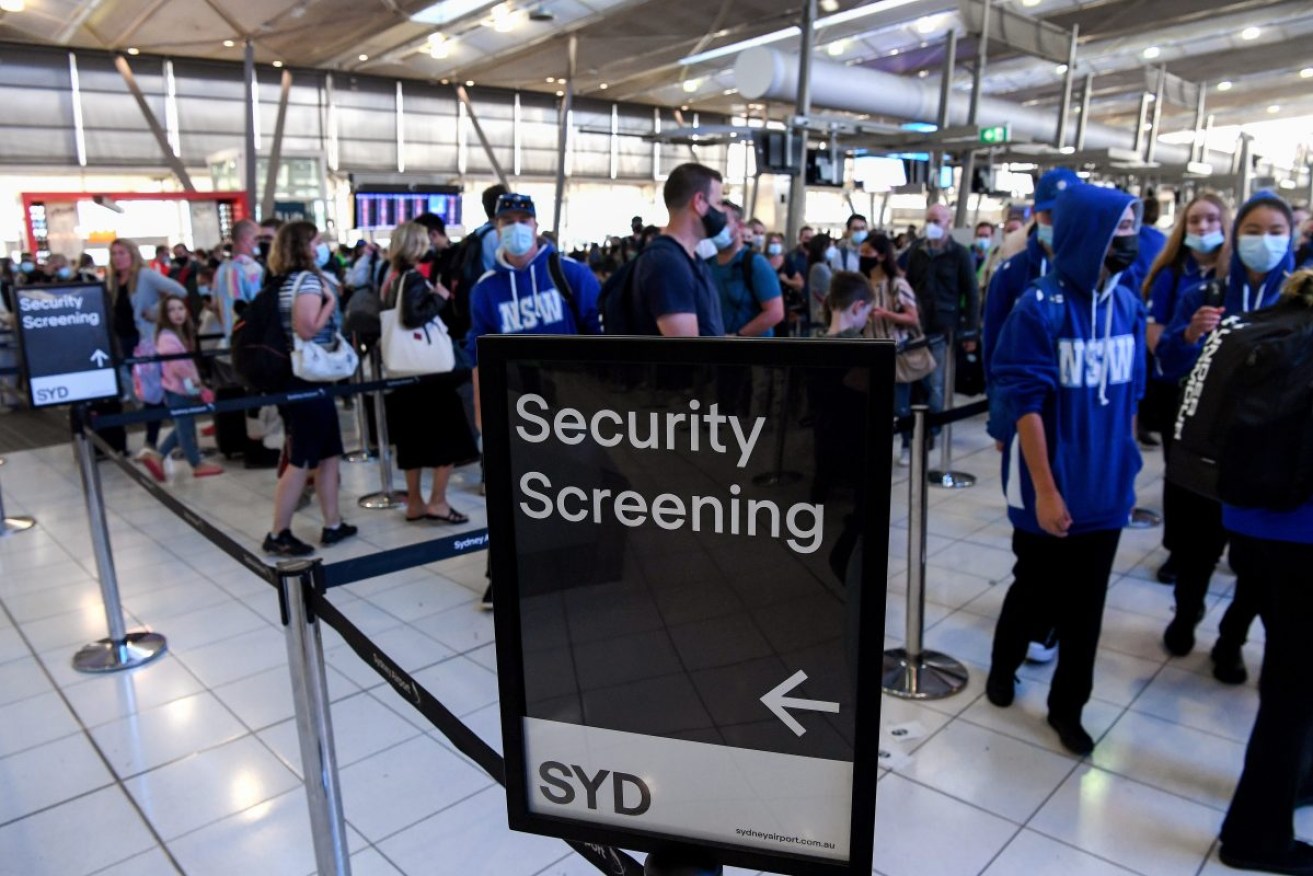Chief Medical Officer says China arrivals COVID testing not needed
Australia’s chief medical officer says the Albanese Government’s decision to COVID test arrivals from China is unnecessary as domestic vaccination rates and local surveillance systems are strong.

Photo: AAP/Bianca De Marchi
The government moved on New Years Day to require people travelling from China to test negative for COVID-19 within 48 hours of departure.
From Thursday, passengers who board flights in China, Hong Kong or Macau that arrive in Australia will need a negative test, while those transiting through will not be affected.
Those who test positive after arriving in Australia will need to follow the local health advice, including the recommendation to isolate while symptomatic.
In a letter to the health minister, dated December 31, Professor Paul Kelly said any additional measures on Chinese travellers would be “inconsistent with the current national approach to the management of COVID-19 and disproportionate to the risk”.
Prof Kelly recommended the government consider enhancing surveillance capabilities, especially for international arrivals.
Suggested measures included testing plane wastewater, voluntary sampling of arrivals, an increase in community wastewater testing and following up with people who test positive for the virus and had recently returned from overseas.
Health Minister Mark Butler said while there was no evidence of an imminent threat to Australia, he made the decision out of “an abundance of caution”.
He cited the need for more data out of China to ensure authorities were able to quickly detect and assess the impact of any new COVID-19 variants and maintained the measure was modest.
“Other countries have expressed concern we don’t have information about a very fast-evolving COVID wave in the largest country on the planet,” he said.
The US, UK, France, India, Japan, Spain and South Korea have all imposed similar testing measures on arrivals from China.
China also requires travellers to produce a negative COVID test.
Butler said similar measures will not be put in place for travellers from other countries such as the United States due to the timely reporting of information and genomic sequencing data.
He said the World Health Organisation describing an absence of information from China formed part of his considerations to pull the trigger.
“We’re just ensuring we’ve got the most information we can possibly get to protect the health of Australians,” he said.
Beijing last month announced it was scrapping strict “zero-COVID” measures in favour of a new policy of living with the virus.
A wave of infections has since erupted across China after borders had been kept all but shut for three years amid a strict regime of lockdowns and relentless testing.
Prof Kelly acknowledged in his advice that experts in China are predicting three winter waves of COVID transmission with the current event expected to run until mid-January, followed by two waves in late January and late February to early March.
Infectious disease expert Robert Booy agreed with the government’s decision, saying the health minister was correct to say better surveillance was needed.
“The potential for a new subvariant is truly there in China, with tens of millions getting infected,” Professor Booy said.
“You’re damned if you do and you’re damned if you don’t. They’ve made a reasonable choice.”
Opposition assistant health spokeswoman Melissa McIntosh questioned why the government would pull the trigger without the health advice recommending to do so.
“Why would you have the chief medical officer say one thing, and the government ignore that and do another?” she said.
Treasurer Jim Chalmers said the government always made decisions in the best interests of the nation and took into consideration the actions of other countries.
“We’ve already got a big enough challenge here managing COVID without unnecessarily exposing ourselves to part of the world that’s got an extraordinarily large wave right now,” Chalmers said.
“We take the medical advice seriously.”
-AAP




